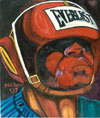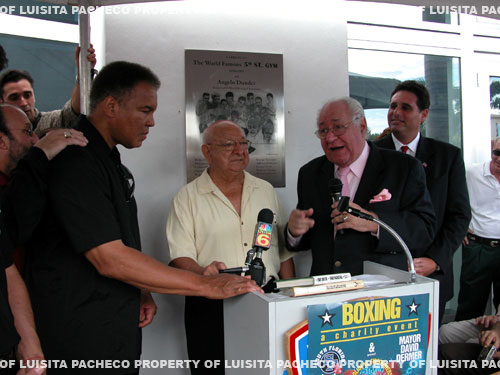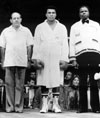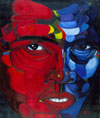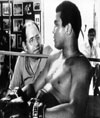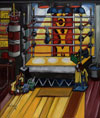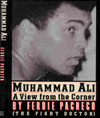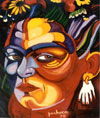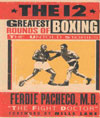I'm now almost 80. I�m on the last pages my book of life. I can look back with clarity on who influenced me the most, who set the example that helped me build the morals and standards that furnished me with a solid unshakeable foundation. Without that foundation it is difficult to be someone worthy.
As I wrote my books on Ybor City, my perspective on my full life narrowed down to my real mentors. I find it strange that out of 80 years all the men who stand out were from my early formative years, and after college, and for the rest of my 50 years of life not one notable person emerged.
To begin this article, I shall list them I�ll tell you who they are in no order of importance. Then, I�ll tell you about them. Those are the first years in Ybor City which shaped my life.
Gustavo Jimenez, Council of Spain and my grandfather. I lived in his house until I was nine years old. He taught me about culture; reading, art, classical music, and writing.
Joseph Baltazar Pacheco, druggist.
My father, a powerful influence on all I did in my life. I strove to please him and live up to his expectations.
Lawrence Hernandez, owner of the Columbia restaurant. The most generous man I've ever met.
Victoriano Manteiga, publisher-editor of La Gaceta.
A lector, political activists, thinker, philosopher and an erudite leader of the then intellectual crowd.
******
Gustavo Jimenez, Consul from Loyalist Spain, born: La Coru�a, Spain.
I was born in his big house at 1019, Columbus Drive. He had had an adventures life. He made and lost several fortunes as a brewer in Mexico. In 1910, General Carranza invested the town of Monterey, Mexico. This was one of the cornerstones of the Jimenez family fortune.
He was wealthy and the pillar of that society, so he was a target to be hung when Carranza took the town. He robbed the rich and hung them.
Gustavo Jimenez had seven children when he came from La Coru�a, Spain to Monterrey, Mexico to seek his fortune. In 10 years he had amassed material comfort. He was liked by the church, all of his children attended Mass assiduously and he donated large sums of money. Similarly, he kept the politicians in the corrupt Mexican government well greased. The problem was he was backing the wrong horse.
After a one week battle the rebels rode into town to rampage, rape and pillage Monterrey. From the time I can remember, periodically my aunt Lola and my crusty grandmother would take out the shoebox of Kodak photos taken during the siege, and tell the stories of heroism and survival. Their stories were thrilling to hear but in all of them, one thing was absent to tell. How did they get out of Monterey without physical abuse? How did they bring out the gold and diamonds which would start them in the New Land? How did they land on the only train leaving Monterey? Even today 80 years later, I could retell their harrowing tales almost word per word, but I never found out the answers to these questions.
They landed in Texas sometime after the Great Galveston flood, migrated to Vera Cruz, then Houston. Once again his wizardry in business put him back in the brewery business. He did well. One of the breweries which had success, evolved into what is now Carta Blanca. Not bad.
Opportunity beckoned in Ybor City, a colony of mainly Spanish immigrants. I cannot track down his upward spiral, but he did well. He made a lot of money, and built a big house.
By the time the '30's came around, the call of his country came: he was still a citizen of Spain, and they drafted him to run the consulate. Civil war was sputtering, and Ybor City was the main focus of Spaniards.
Here's where I come in. He had seven children and he was fair but a tough disciplinarian. The children grew up afraid of him. He loved them but at a distance, and the loyalists needed organizing.
When I came rolling around he had softened his ways. He loved me, and held me on his lap every chance he got. He was determined to teach me what he had forgotten to impart to his own children. And he ladled out his knowledge with the great dollop of love and warmth.
My first recollection was breakfast. We would wait for him to appear in appropriate coat and tie. He would lift his glass of orange juice to prepare us to make our toast: "Gracias a Dios, que naciste en America!" ("Thank God I was born in America.")
"What are you?"
"An American, sir."
"Not a Spaniard?"
"No sir, I am an American citizen of Spanish heritage."
"Bien, bien."
This went on until he died when I was nine. Boy, did I have that firmly in mind. It was his first contribution to my character. I was a patriot and damn proud of it. That lesson held firm in my life until today when I still consider one of my finer attributes, my patriotism, and my love of country.
I am an American: but of Spanish heritage.
His love of the classics and his desire to leave his stamp on me took the shape of our weekends together. Bear in mind I was five to nine years old when these University classes were administered to me. I loved them, and looked forward to his teachings but I didn't appreciate their importance.
Class started of Saturday. On that day the Metropolitan Opera would present a full opera. We would listen to it on the radio. During intermissions and half time, Milton Croft, would explain the libretto, so we could keep up with the story. I hated the singing. It got in the way of his story. All those words! Phooey. But the music was nice.
Patiently my grandfather taught me to appreciate the difference between a great vocalist, and an ordinary singer. One afternoon I can remember hearing a truly exceptional voice. It belonged to Enrico Caruso. It must have been a record. I don't know if my grandfather rushed out and bought every record he could of Caruso. Then, I began to listen to the singers in opera.
I still don�t like to go to the opera, but I do enjoy hearing the records of the great singers. Although he never said so, I had the feeling that he agreed with me. Let me hear them, I don't need to see them.
On Sunday at noon, the NBC Symphony, with Toscanini conducting came on.
Now, that was lovely. The music that came out of our radio was overwhelming.
My grandfather would stand us on two stools in front of the radio, he furnished us with the #2 Eagle pencils unsharpened and we were to conduct the whole NBC Symphony. Our arms outstretched holding the pencil as a baton. Tempo! Tempo! He would say. Silence, quiet he would signal us and the violins would whisper of passage.
I can�t say I could ever conduct a symphony, but I did have a whole lot of fun trying. By the end of my years I could tell the difference between a Beethoven and a Verdi. They were no longer torrents of sound. I knew them now. They were old friends. I was glad to hear them again. This also amazed my college teachers.
Music was so close to his heart because he had been a professional flautist in a symphony orchestra in Spain.
His biggest contribution to my appreciation of culture was the study of art.
The Ringling Brothers had built a fine Museum of Art in Sarasota where their circus' wintered. They built a lavish museum to house the collection of Rembrandts, David�s, Durer and many 20th-century contemporaries who developed into masters.
We would come in with our folding chairs, my grandfather, grandmother, my brother Joseph and I. We would sit still for a long time, studying the canvas he'd picked for our lesson. At first we had no clue what it was we were studying. What did he want us to see?
�Who are you looking at and where is your eye focusing, Ferdie?"
�The guard�s officer with the light," I would say.
�A ha! That's right. That is because the painter wants to draw your attention to that upper quadrant; now project triangles of space from that focus and you begin to subdivide the painting into smaller and smaller squares. Now, children can you see the design of the painting?"
Over the wonderful Sundays we journeyed to the Ringling Museum, we broke down and studied all the paintings in their ample gallery. What an education.
Then we would take the big Packard to Bok Tower, a tower built to house a set of musical bells, a gift from Germany. It was surrounded by a horticulture part of extreme beauty. We would arrive in time to spread out a nice blanket. Grandmother would pour our hot chocolate into cups from the Thermos we brought and served it along with Social Tea Cookies. We would sit and relax, listening to the beautiful music of the bells. Grandfather did not allow anyone to speak. We listened. We thought. Then, it was time to meditate. He would make us lie down to stare at the clouds. What do you see? "Nothing but clouds," I would say truthfully.
"No. There's a pirate ship, look you see the main mast, and the main sails, do you see it, Ferdie?"
"Yes, Abuelo, I do now."
"Keep looking there are a lot of stories in the clouds."
Thus playing the cloud games with us, he exercised our imagination. We saw things and we weren't afraid to say so. We began to see things through our own eyes. The first step in painting was taken; how to look at an object, through our eyes.
When I was at University I came to the realization of what use the clouds game was in the appreciation of art and in becoming a painter.
The clouds game sharpened my sense of perception. I would see an obscure image, accept it in my brain, redefine it, sharpen it and then vomit it out to my canvas: my version of what I saw.
I found out that all art starts this way. You see an object as it is in nature. It travels that way, through your eyes, and somewhere in your brain it changes in appearance, and thence back out to the canvas and now you paint what you, the artist, �sees� in your inner mind. That is art. If you can�t see and accept that, then drop art and switch to photography.
Once, my grandfather was baffled. I came home pouting. I explained that after lunch I was looking at the clouds and meditating. My principal scolded me and said she didn't know about meditating, but she did know about Daydreaming, and I was to stop it!
When he died, I missed him fiercely because there was no one in my family with his broad range of culture and knowledge. He left us his books from Spain, but without his kind voice to interpret the words, I soon lost interest. No one would take us to Ringling's. No one would make us listen to the opera or symphony on NBC. We were set adrift in the cultural vacuum that was Ybor City.
It wasn't until I was taking a course in art appreciation that I became aware, that I knew more than the teacher. Those years spent in front of Rembrandt, had etched in my brain, how art should be viewed and be looked at. I didn't need the University of Florida I had the University of Jimenez in my brain.
